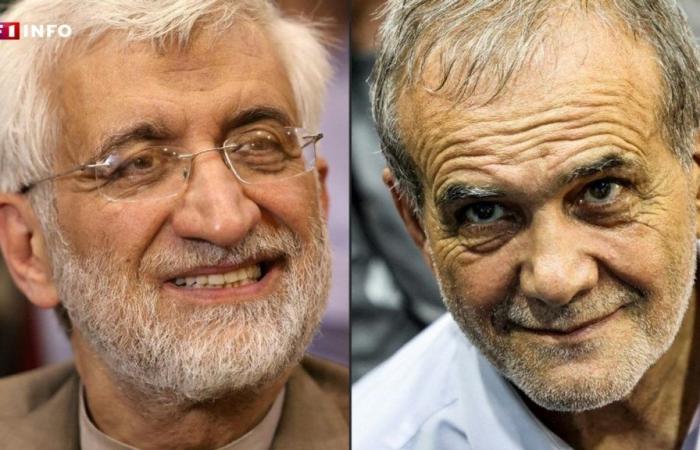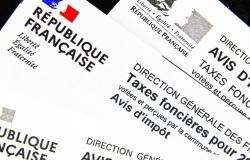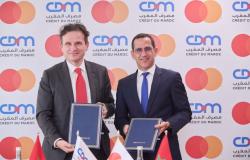
Ultraconservative candidate Said Jalili will face reformist Massoud Pezeshkian in the second round of Iran’s presidential election, the Interior Ministry announced on Saturday.
Only one second round had been held since the Islamic Revolution in 1979, in 2005.
The two candidates will be decided on July 5.
Follow the full coverage
Iran: President Raïssi dies in a helicopter accident
Iran on its way to a second round. Reform candidate Massoud Pezeshkian will face ultra-conservative Saïd Jalili on Friday July 5, the Iranian Interior Ministry announced on Saturday, the day after the first round. “None of the candidates were able to obtain an absolute majority of votes” et, “therefore, the first and second candidates” will be decided, said Mohsen Eslami, spokesman for the ministry’s elections department.
According to a provisional count published in the morning, out of 19.07 million ballots counted, MP Massoud Pezeshkian had collected 8.3 million votes, compared to 7.19 million for Saïd Jalili.
Massoud Pezeshkian, a 69-year-old surgeon, is a member of parliament for Tabriz, a large city in northwestern Iran. He made a name for himself by criticizing the government during the protests following the death of Mahsa Amini in September 2022. He is in favor of warming relations with the West. Said Jalili, 58, a former nuclear negotiator, is on the contrary in favor of an inflexible policy towards the West.
-
Read also
Iran overturns death sentence for rapper Toomaj Salehi
A first since 2005
The organization of a second round is a first in the country for 19 years. Out of 14 presidential elections held since the Islamic Revolution of 1979, only one has so far been decided in the second round, in 2005.
Nearly 61 million voters were called to vote on Friday. This election was hastily organized after the death of conservative President Ebrahim Raïssi in a helicopter accident on May 19.
It is being closely followed abroad as Iran, a Middle East heavyweight, is at the heart of several geopolitical crises, from the war in Gaza to the nuclear issue, in which it opposes Western countries. Ayatollah Ali Khamenei, the highest authority in Iran, had called on voters to “take the vote seriously and participate in it”. Conversely, opponents, particularly in the diaspora, supported a boycott of the vote.





